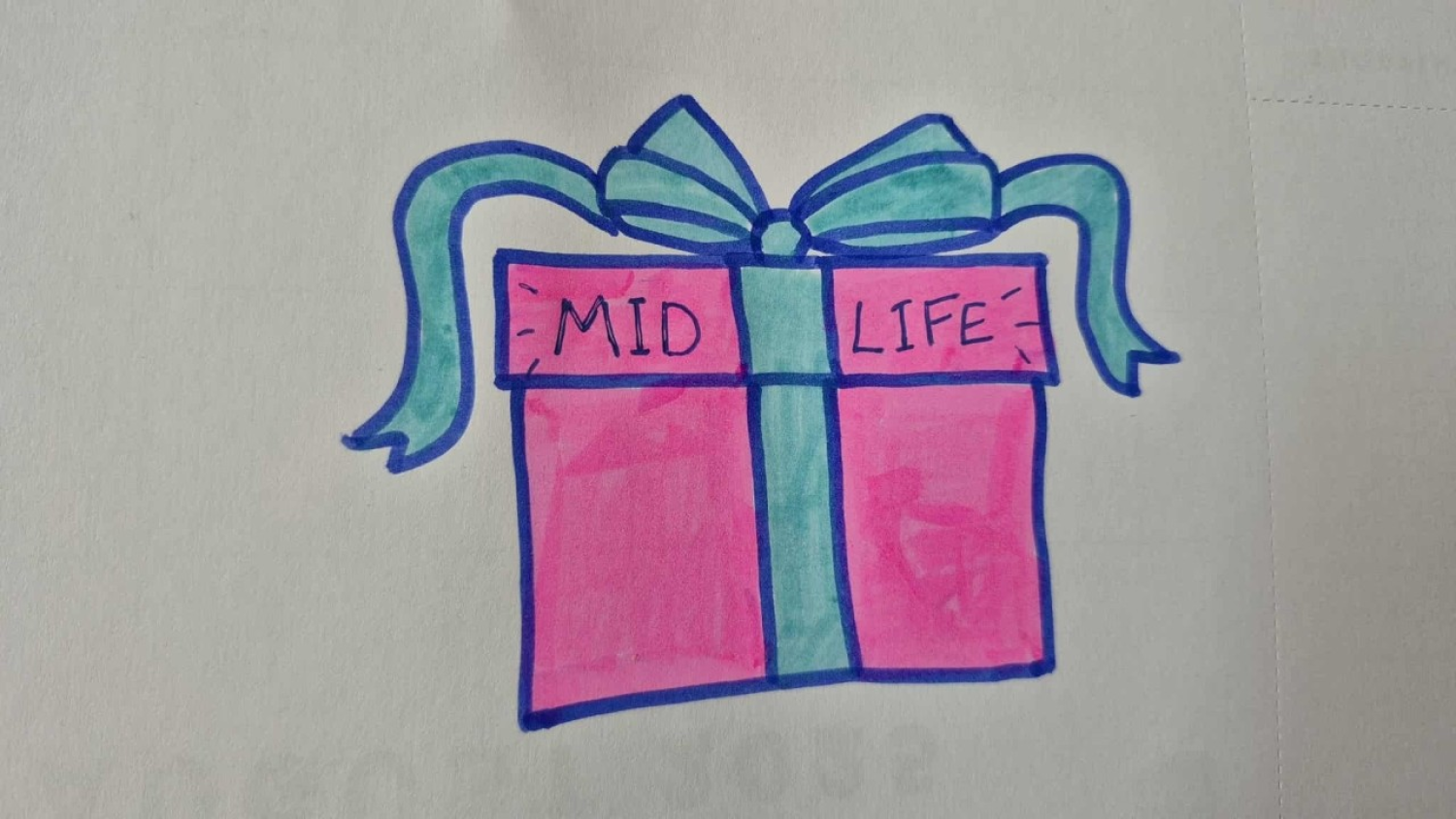Hello and welcome to Life Lessons from Death, a newsletter for people and organisations curious to know what death can teach us about living and working well.
In our professional and personal lives, change is a constant and endings are a part of life. We can fight this – and lots of us try to - or we can learn to ride it. If we can ride it, we will find that every ending holds the seeds of something new, the chance to learn and grow.
As Founder of London funeral directors Poppy's, I’ve had more than a decade of insights from death, and it has transformed me. Now I want to invite you behind the scenes so you can learn too.
This week, I'm celebrating the gift of midlife, I'm championing good care for trans and gender diverse people and I'm reflecting on the varied and normal responses to grief.
I post updates fortnightly so please do subscribe and share widely.
The Gift of Midlife
An old Brené Brown interview came up on my Instagram feed yesterday in which she describes midlife to Tim Ferriss. In Brene's words, midlife is when 'the universe comes down, puts her hands on your shoulders... and whispers in your ear, ‘I’m not f***ing around, you’re halfway to dead.’'
Now this might sound like a threatening prospect. But there's another way to take it. I think working with death gives you a particular perspective on life - that it's not to be taken for granted. I am very, very conscious that not everyone has had the chance to get to this point. Statistically, at 42, I'm likely to be just over halfway through my life. It's very unlikely, but it is also possible that this is my last day, week, month or year. I don't feel scared about that. It's not a looming, anxious thought at the forefront of my mind. Rather it's back there, along with all the other stuff that isn't clear or guaranteed.
But having that thought back there definitely helps to shape important decisions I take in my life, about....
🏃🏻♀️ Health: care a good amount but watch out that deferred gratification doesn't get out of control.
💵 Money: it's good to plan for tomorrow because it probably will come, but as above, don't sacrifice today or this year for ten years time.
🤝 Relationships: they are everything. In fact, relationships (with the living and the dead) are all there is, in the end.
Being conscious about the limited reality of my life can be a helpful tool in shaping it to be as meaningful as possible. Knowing I will die is a solid prompt to think carefully about how I want to spend my time, an approach I don't think I could have cultivated in the first half of my life.
If you're nearing or in or past midlife, does any of this speak to you? I'd love to know.
Caring Well for Trans and Gender Diverse People
It's strange and horrible to think we might have our identities taken from us in our last years, months and weeks on this planet. But this is the experience for many queer, trans and gender diverse people.
Thanks to work undertaken by Ashley James Hayhurst alongside GIRES, Hospice UK and Stonewall, the Being Ready Survey Report has just been published, revealing important, painful findings illustrating how trans and gender diverse people can experience support, or the lack of it, when dying or bereaved:
78% of trans and gender diverse people said their worries about end-of-life care were directly linked to negative past healthcare experiences.
68% said their identity shaped their end-of-life planning, often to protect themselves from being misgendered or erased.
48% of professionals had never received training on the needs of trans and gender diverse people
And just 8% felt very confident preparing the body of a trans or gender diverse person for burial or cremation.
And for the 92% of people working in death and dying who don't feel confident, and for all of us who don't have all the answers yet: that's okay. There is something we can do about it. We can sign up for the Being Ready training to change and challenge these statistics for next time. Go on, check it out.
Mothers, Daughters and Grief
Recently I went to hear Arundhati Roy talk about her new book, Mother Mary Comes to Me which explores her relationship with her mother, who died in 2022.
I was moved and interested to hear the way she described her grief, which is emphasised further in this interview with ABC News. ‘I was shocked at my response. I was a little ashamed and humiliated.... When she died, it was as though I had grown into this peculiar shape to accommodate her. And then she wasn’t there and my shape didn’t make sense to me anymore.'
This description speaks to me. These feelings of shame and humiliation - which are rarely expressed publicly - that we might be somewhat horrified by the depth of our grief, perhaps especially when the relationship with the person who died was complicated. Perhaps we had assumed we wouldn't feel so much when the death came, but it hits and bends and twists us into a new shape nonetheless.
We need to make space for all the stories about grief to better understand and support each other when it is our turn. In the meantime, I'm off to start the book!
Okay friends, until next time
